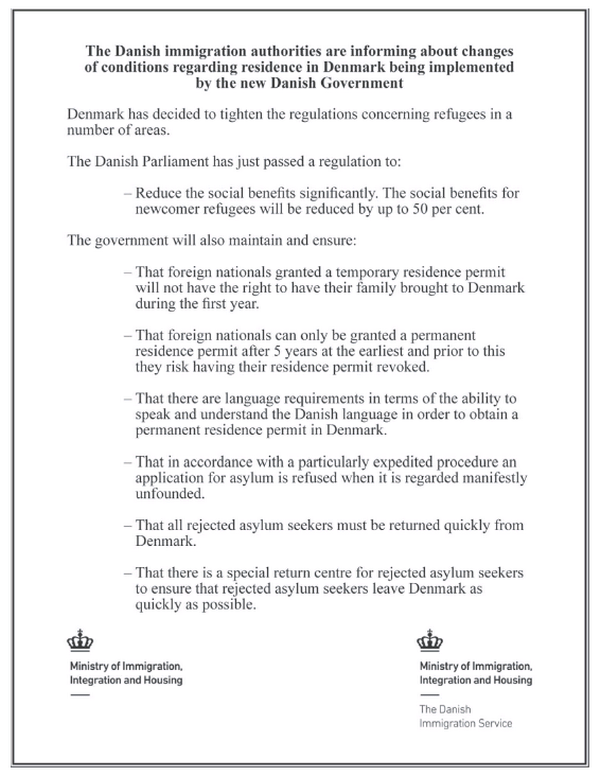The Danish government’s decision to print anti-refugee ads in four Lebanese newspapers, which detail the tough conditions for people seeking residence in Denmark, will not have much effect, according to Sine Plambech, a migration researcher at the Danish Institute for International Studies (DIIS).
Plambech contended that the seven-point ad won’t have an impact because desperate refugees and human traffickers don’t keep up with what is written in the newspapers.
“Human traffickers have no interest in conveying the campaign to the refugees,” Plambech told TV2 News. “Besides that, it’s very rare that the traffickers behind the boat trip have anything to do with the trip towards Denmark. They are completely different chains.”
“The few surveys taken of refugees show they are more concerned with safety and human rights than benefits. Getting away is more important than where they end up. Campaigns against migration generally have a minimal effect.”
READ MORE: Straight up: Refugees and the politics of fear
Inger going all in
Plambech’s statement goes against the declaration of the immigration minister, Inger Støjberg, who is behind the ads and wrote on Facebook that Denmark “ranks high on the lists of human traffickers”.
The anti-refugee ad will also be posted in ten languages at asylum centres in Denmark, and a social media campaign will also be launched.
“In light of the massive migration to Europe these days, there is an extra reason for us to tighten up and communicate that effectively,” said Støjberg.














